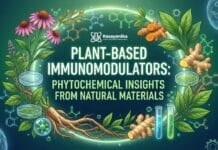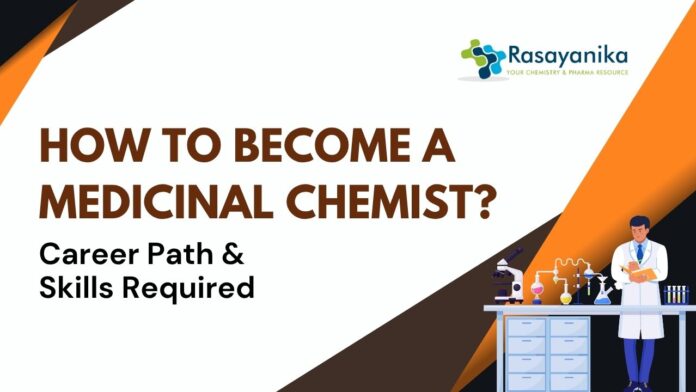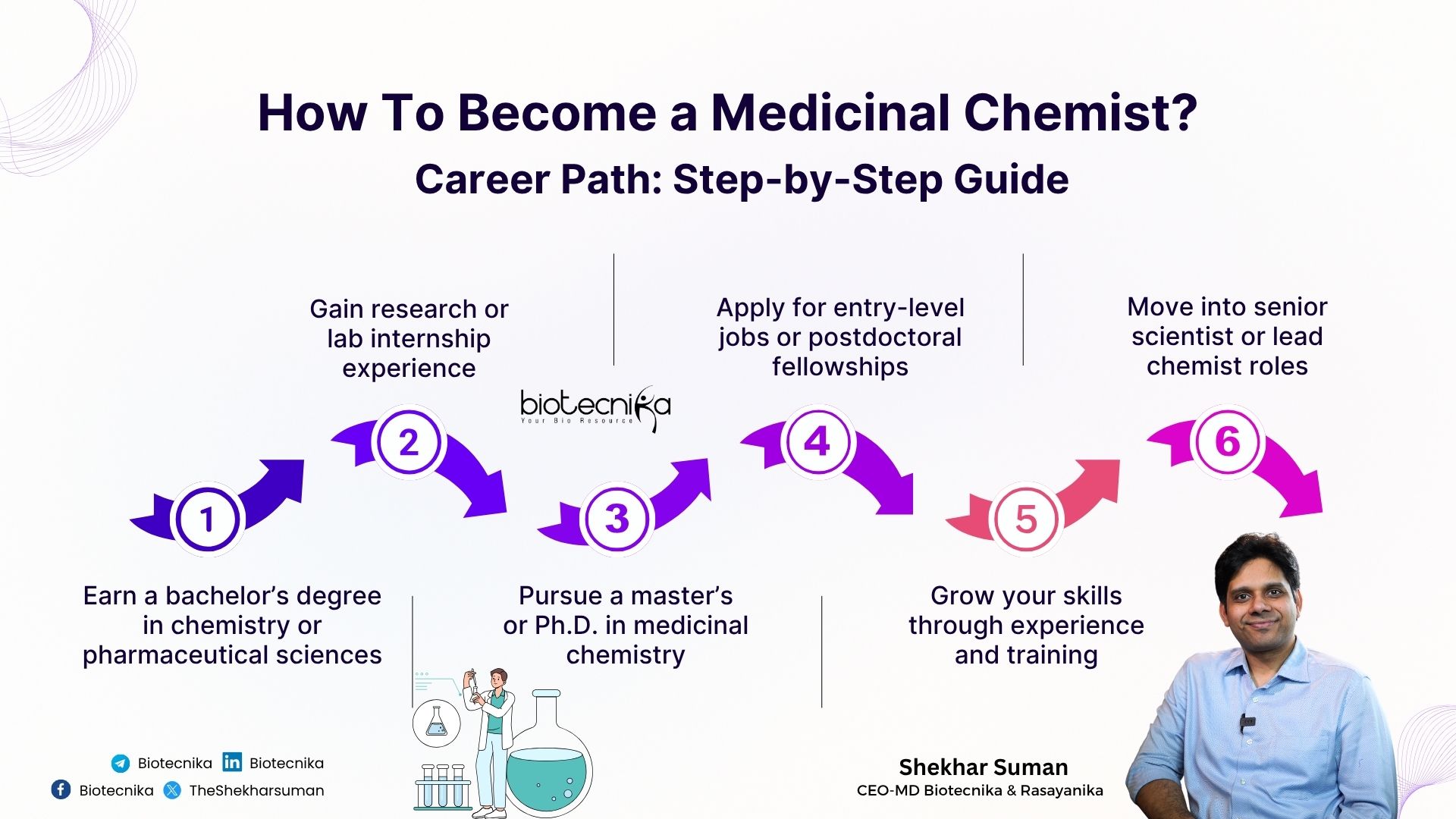How To Become a Medicinal Chemist: Career Path & Skills Required
Medicinal chemistry is an exciting and rapidly growing field that combines chemistry, biology, and pharmacology. This emerging field focuses on developing new drugs and enhancing existing ones. If you’ve ever wondered how scientists design life-saving medicines, medicinal chemists are at the heart of that process. This career plays a vital role in pharmaceutical research, making it an excellent choice for science graduates passionate about healthcare and innovation.
In this article, we will explore the career path of a medicinal chemist, the essential skills required, and the opportunities available in this field globally.
What Does a Medicinal Chemist Do?
Medicinal chemists are scientists who are involved in developing new drug compounds. Their primary role is to design, test, and create new chemical compounds that can potentially be used as drugs. They work closely with pharmacologists and biologists to ensure that the latest chemical compound is both safe and effective for use.
A few essential responsibilities of a medicinal chemist include:
- Synthesizing new molecules
- Optimizing drug structures for better activity
- Conducting chemical analysis and purification
- Collaborating on preclinical drug testing
- Ensuring regulatory and safety standards are met
They are making significant contributions to the drug discovery process. They are helping to transform a chemical idea into a real treatment that can benefit patients worldwide.
A Career in Medicinal Chemistry:
Choosing medicinal chemistry as a career means working at the intersection of chemistry and medicine. Here are some compelling reasons to consider this profession:
- This is one of the best medicinal chemist career paths, which has a significant impact on society. This job role helps in developing medicines that can help many patients and could be a lifesaver.
- Choosing a career path like a medicinal chemist helps one build their career worldwide. This is due to the exponential growth of the pharma and biotech sector.
- This also provides exposure to the research sector. One should thoroughly understand, explore, and be innovative to discover new chemical compounds daily.
- This job role offers a wide range of opportunities, as well as job security. As the demand for drug development is increasing, so is the demand for skilled professionals in such roles.
- Medicinal chemists also receive a high pay scale, and they typically receive competitive salaries in most countries worldwide.
Educational Requirements
- Undergraduate Degree:
One of the first steps in becoming a medicinal chemist is to establish a strong foundation in chemistry or a related field. Common undergraduate majors include Chemistry, Biochemistry, Chemical Engineering, and Pharmaceutical Sciences.
During your bachelor’s, focus on gaining hands-on laboratory experience, especially in organic chemistry and analytical techniques.
- Master’s Degree (Optional but Recommended)
While some entry-level roles are available with a bachelor’s degree, most medicinal chemistry jobs require a master’s or Ph.D. A master’s program will give you:
- Advanced laboratory techniques
- Exposure to drug development processes
- Research experience with faculty or industry partners
Consider a specialization in Medicinal Chemistry or Pharmaceutical Chemistry.
- Ph.D. in Medicinal Chemistry
This is advice for candidates interested in and seeking research roles. This will be an added advantage for those interested in leading projects and building a career in the academic sector. Having a PhD will also help a candidate to pursue higher positions in industry. One can obtain a PhD either by conducting an independent research project or by collaborating with interdisciplinary fields. Publishing papers will also be an added advantage.
Core Skills Required to Become a Medicinal Chemist
To have a successful career as a medicinal chemist, one should possess not only technical skills but also soft skills. A few of the essential skills are listed below;
- Strong Organic Chemistry Knowledge
Medicinal chemists should possess a thorough understanding of the molecular structure. This will enable them to manipulate the chemical compound in such a way that it will be used for beneficial purposes. Having a deep understanding of organic synthesis and reaction mechanisms is a must.
- Analytical Thinking
One of the most valuable skills required in a medicinal chemist career path is analytical thinking. To comprehend complex data and make simpler, understandable structure models that can be used for drug development processes.
- Lab Skills
Gaining hands-on lab experience is highly crucial. One should be well-versed with techniques such as Chromatography (HPLC, GC), Spectroscopy (NMR, IR, MS), and Compound purification and synthesis.
- Collaboration
Drug discovery requires a collaborative team effort. One should be actively involved in collaborating and working with pharmacologists, toxicologists, and regulatory scientists. One should have thorough communication skills, along with teamwork, which are essential.
- Problem Solving
Challenges in drug design are common. Being innovative and able to troubleshoot experimental failures will help you grow and advance your career.
- Computer-Aided Drug Design (CADD)
With the advancement in technology, one should also stay updated with computer design skills. This will enable the design of chemical compounds in much simpler ways. Familiarity with software used in molecular modeling and virtual screening will be an added advantage. This will particularly help in modern pharmaceutical research and development.
Career Path: Step-by-Step Guide
Here’s a simplified pathway outlining how to become a medicinal chemist:
| Step | Description |
| Step 1 | Earn a bachelor’s degree in chemistry or pharmaceutical sciences |
| Step 2 | Gain research or lab internship experience |
| Step 3 | Pursue a master’s or Ph.D. in medicinal chemistry |
| Step 4 | Apply for entry-level jobs or postdoctoral fellowships |
| Step 5 | Grow your skills through experience and training |
| Step 6 | Move into senior scientist or lead chemist roles |
Where Do Medicinal Chemists Work?
Pursuing a medicinal chemist career path is in high demand in various industries and sectors, including:
- Pharmaceutical Companies – e.g., Pfizer, Novartis, Johnson & Johnson
- Biotechnology Firms – e.g., Gilead Sciences, Regeneron, Biocon
- Contract Research Organizations (CROs) – e.g., Syngene, Covance
- Academic & Government Labs – e.g., CSIR labs in India, NIH in the US
- Chemical Manufacturing Companies
Depending on the employer, one’s work environment may be in a laboratory, office, or even a remote collaboration setup.
Certifications and Additional Training
To boost your profile, consider certifications such as:
- Postgraduate Diploma in Drug Discovery and Development (offered by various universities)
- Certified Professional Chemist (American Institute of Chemists)
- Online courses on drug discovery – platforms such as Biotecnika
These certifications help bridge the skill gap and keep you updated with new techniques in medicinal chemistry.
Tips for Aspiring Medicinal Chemists
- Start Early: Get lab internships during your undergraduate years.
- Network Actively: Attend science conferences and workshops.
- Keep Learning: Stay current with research journals, such as the Journal of Medicinal Chemistry.
- Seek Mentorship: Connect with professionals on LinkedIn or academic alumni.
- Focus on Soft Skills: Communication and collaboration are just as vital as lab skills.
Challenges in the Field
Having a medicinal chemist career path also comes with challenges such as:
- Long drug development timelines
- Regulatory complexities
- Constant need for upskilling
- Ethical considerations in animal testing
Being aware of these helps prepare you better for real-world scenarios.
This article covers all the required information and serves as your guide if you want to choose a medicinal chemist career path. Along with a strong educational foundation, one should always have dedication and curiosity to excel in the field. This career offers the chance to make a lasting impact on global healthcare while working with some of the most advanced scientific tools and methods.
Whether you’re a student planning your career or a professional considering a switch, medicinal chemistry opens doors to innovation, discovery, and purpose. One should begin by upskilling and staying updated with recent trends. This will undoubtedly lead to the next breakthrough in medicine, benefiting patients worldwide.















































